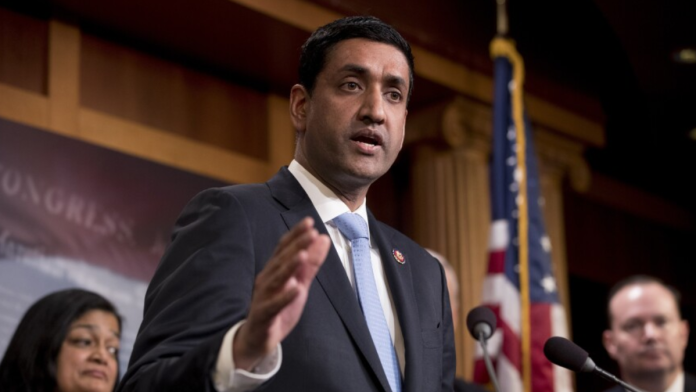A political storm has erupted in Washington after Congressman Ro Khanna announced a new bill to ban top public officials — including President Donald Trump, members of Congress, and their families — from trading cryptocurrency. The move came shortly after Trump granted a controversial pardon to Changpeng Zhao, the CEO of Binance, the world’s largest cryptocurrency exchange.
Khanna said the pardon was “corrupt” and called for stronger laws to stop conflicts of government interest. He said his legislation would prevent elected officials and their relatives from owning or trading digital assets or stocks that could influence their decisions in office.
According to Khanna, public service should not be mixed with personal profit. “It’s about fairness and trust,” he said. “People deserve leaders who work for the public, not for their wallets.”
The Binance pardon and rising backlash
The controversy began when Trump pardoned Zhao, who had served a four-month prison sentence for failing to prevent criminals from using Binance for illegal activities such as child exploitation, drug trafficking, and terrorism financing.
Critics argue that the pardon raised serious ethical questions because of the close links between the crypto industry and the Trump family. Trump’s sons, Donald Trump Jr. and Eric Trump, recently launched their own cryptocurrency project, World Liberty Financial, which reportedly received backing from Binance.
Khanna pointed out that this connection suggested clear corruption. “A billionaire with a criminal record supports a family-run crypto firm, and soon after, he gets a pardon. It’s corruption in plain sight,” he said in a televised interview.
He also warned that such situations pose national security risks when foreign business figures gain influence over U.S. leaders through financial ties. “It’s not just unethical — it’s dangerous,” Khanna added.
World’s largest pig butchering scam busted — $15 billion crypto seized from Prince Group
Crypto ties and relaxed enforcement under Trump
Trump’s pardon fits into a larger pattern of his administration’s relaxed approach toward the crypto sector. Several enforcement actions launched under the previous government were reportedly dropped, and the Justice Department’s crypto enforcement team was disbanded earlier this year.
This has alarmed watchdog groups, who fear major cryptocurrency firms could gain unchecked influence over government policy. Critics say such actions benefit large crypto companies while weakening safeguards against money laundering and corruption.
Analysts note that these policy shifts blur the line between governance and business. Public officials with financial interests in the crypto market could shape regulations that directly benefit their personal ventures.
Khanna’s bill targets this issue by proposing a strict ban on crypto and stock trading for elected officials and their immediate families. The aim, he said, is to ensure decisions are made in the public’s best interest — not for financial gain.
Business backlash explodes — U.S. Chamber sues Trump over shocking $100,000 H-1B visa fee
Growing demand for accountability in government
Khanna’s proposal has reignited the debate over transparency in politics. Over the past year, several lawmakers have faced criticism for owning or promoting cryptocurrencies while influencing related policies.
Under his bill, all elected officials and their families would be barred from owning, trading, or promoting digital currencies while in office. It would also prohibit them from accepting funding or investment from foreign crypto companies.
“This isn’t about one president or one party,” Khanna said. “It’s about protecting democracy and restoring trust in our system.”
Supporters say the legislation would close loopholes that allow corruption to flourish and reduce the risk of foreign influence in American politics. Many believe it is a necessary step to rebuild public confidence in leadership and separate business interests from government service.
The move has sparked widespread discussion in Washington and across the country, as critics continue to question the motives behind Trump’s pardon of Zhao. With Khanna’s bill now gaining attention, the relationship between politics and cryptocurrency is once again under the spotlight — and calls for accountability are only growing louder.


